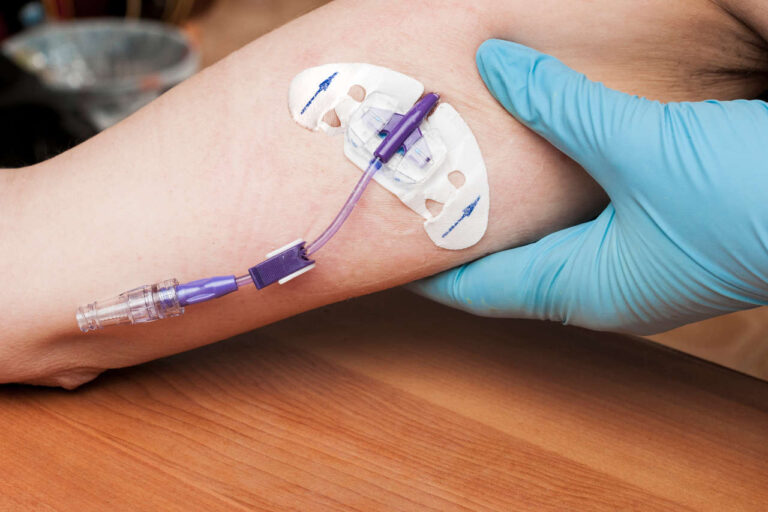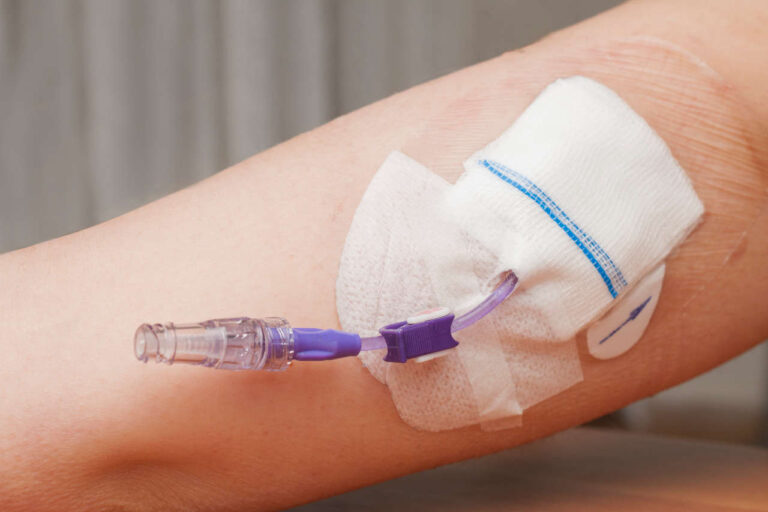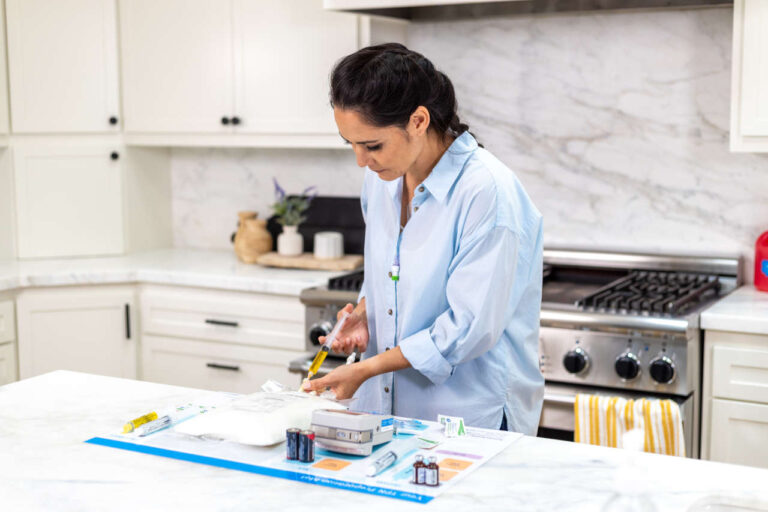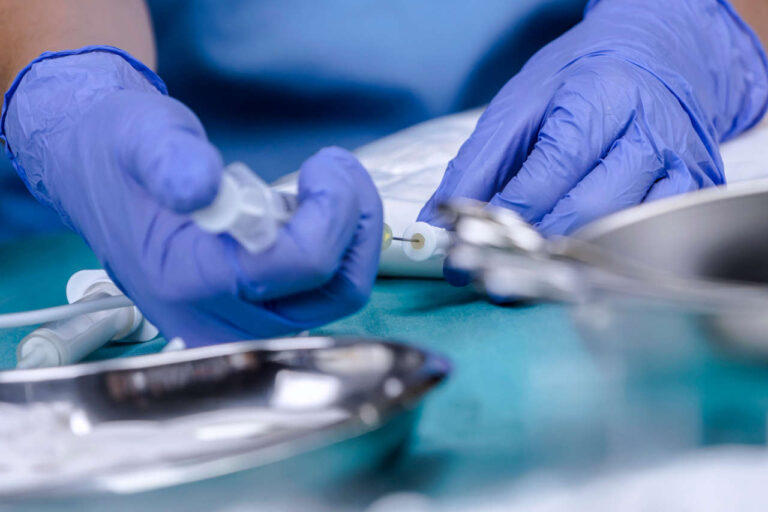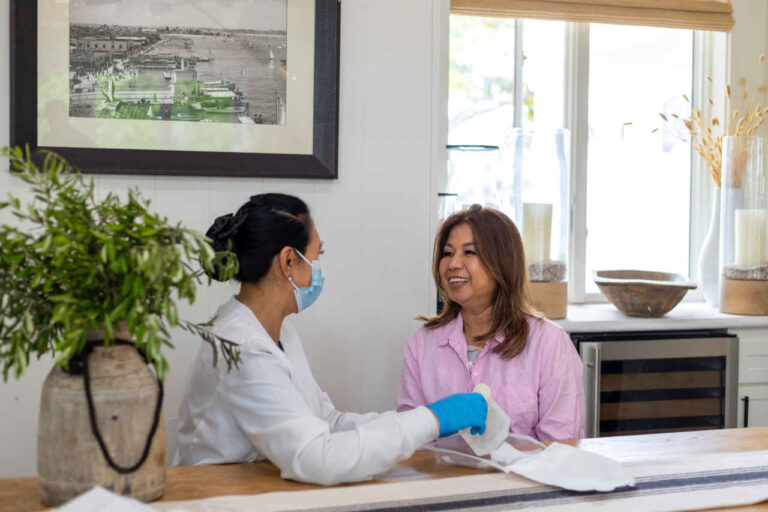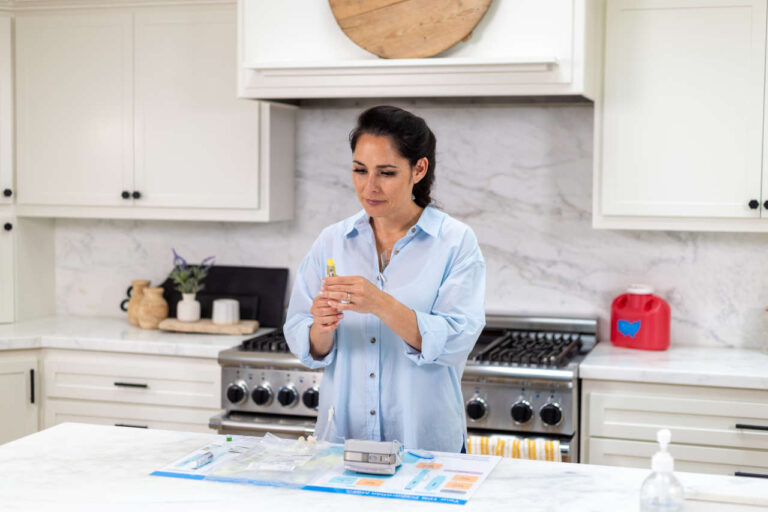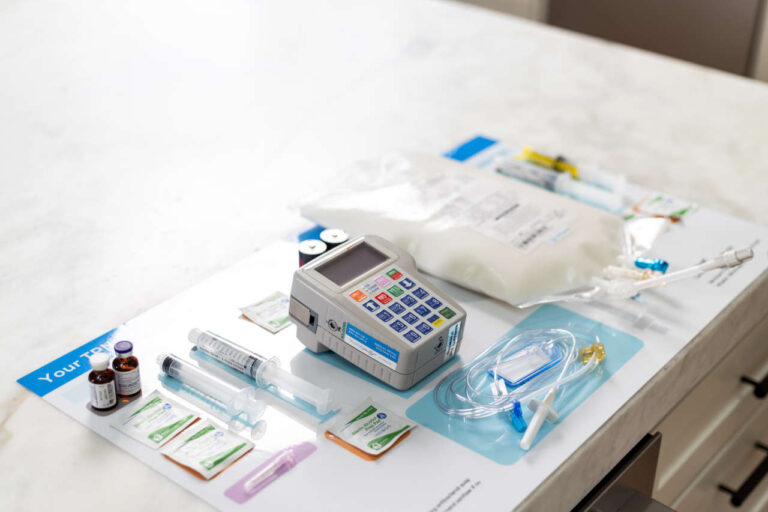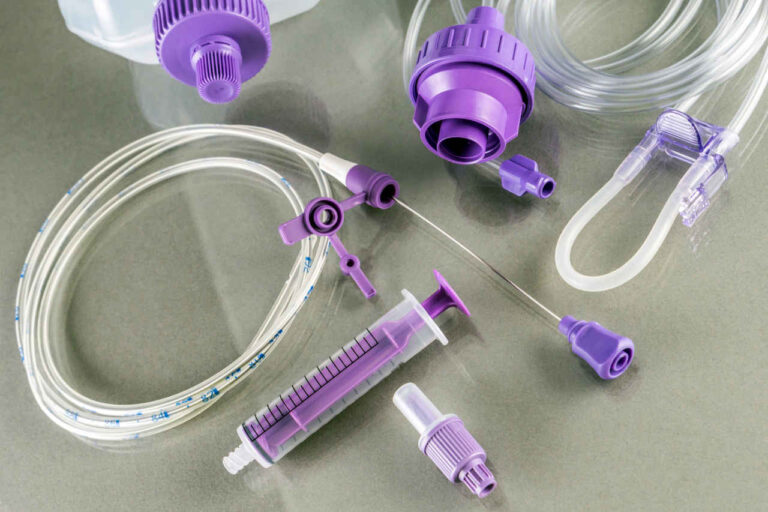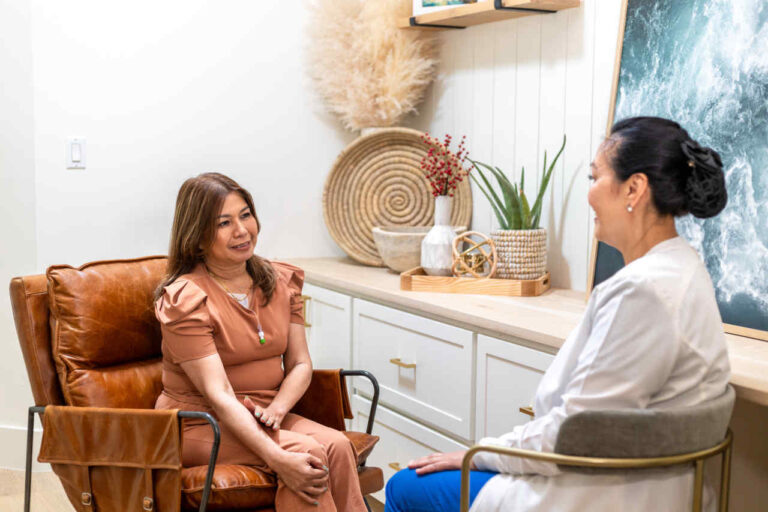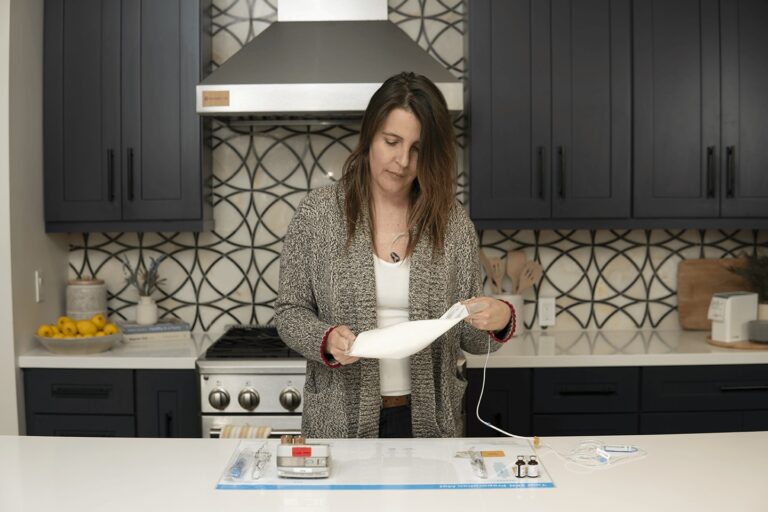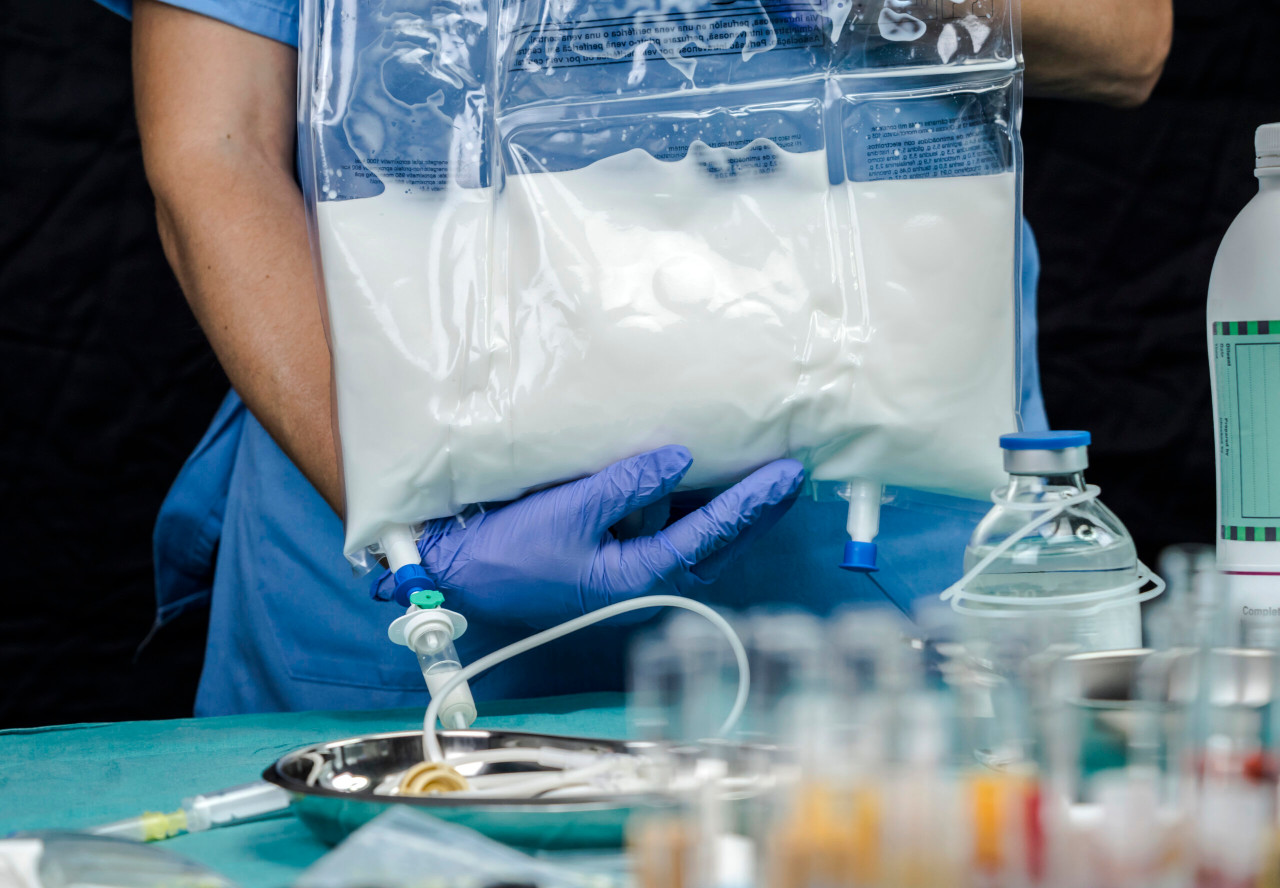
Living with total parenteral nutrition (TPN) support can be a difficult transition, but not an impossible one. Many who rely on TPN infusions for their nutritional needs can live active lives despite their challenges.
With the right mindset and proper management of your medical condition, you can learn how to adjust to your life with using these ten TPN tips.

1. Learn how to self-administer TPN at home.
The first step in adjusting to life with TPN is to learn how to administer TPN at home by yourself. Because this will become a part of your daily routine, it’s essential to receive the education and training required to avoid complications. This will include learning how to prepare your TPN bag, how to use the IV pump, how to attach the tubing to your catheter and how to avoid infection during the entire process.
Don’t be afraid to ask your nurse or specialist as many questions as you need to feel comfortable administering TPN at home.
AmeriPharma™ Specialty Care
Total Parenteral Nutrition | Leader In TPN Assistance2. Decide on an infusion schedule.
Because TPN infusions can take anywhere from 10 to 12 hours a day, most people prefer to do it at night while they are asleep. This allows them to go about their day without the hassle of worrying about TPN feeding.
However, some people find it uncomfortable and have a difficult time staying asleep while hooked up to an IV. If nighttime infusions are getting in the way of a good night’s rest, you may want to consider daytime infusions.
A TPN backpack can be used to facilitate daytime infusions. They are specially designed to hold all your supplies while allowing the IV tubing to connect to the access site on your body. Using a TPN backpack is a great way to maintain your mobility while infusing during the day.
3. Care for your PICC line.
Caring for your PICC line is vital in preventing infection at the IV site. Your healthcare providers may provide you with an instruction booklet, and the information may also be covered when you receive your TPN training with a nurse or specialist.
Take extra precautions when showering. You can keep the PICC line area dry by taping a plastic bag over the area. You may also want to invest in a reusable vacuum sealed waterproof PICC line cover to keep water out while you are in a warm bath, relaxing shower, or swimming

4. Monitor your side effects.
Understanding how TPN affects your body can help you prepare for your infusions. Most people don’t experience any noticeable side effects. However, people on TPN may occasionally experience fatigue, nausea, cramping, and other side effects.
Inform your doctor or specialist of any side effects you experience so they can make the necessary adjustments to your treatment. Additionally, if you experience mild side effects, you can plan your infusion schedule to ensure you are in a comfortable and safe environment.
AmeriPharma™ Specialty Care
Total Parenteral Nutrition | Leader In TPN Assistance5. Understand hunger vs. craving.
As you begin TPN, you’ll start to miss the sensation of eating and the feeling of a full stomach. Craving flavors from your favorite foods may trick your mind into thinking that you are hungry when, in fact, you are longing for an accustomed sensation.
With TPN, you should be receiving the necessary nutrients and calories to sustain your body. However, if you are experiencing signs of dehydration or unbalanced blood sugar, it may be a sign that your TPN formula needs adjustment.
6. Educate friends and family.
Those in your inner circle want to help and support you. Allow them to do so by educating them on what TPN is, why you need it, and how it works. When they understand the limitations you face, they can look for alternative ways to spend time with you that don’t put you in an uncomfortable situation.
7. Participate in social events.
When every social gathering is centered around food, it can feel a bit discouraging as someone who is unable to intake food orally. However, making sure you stay connected with the world can help prevent anxiety and depression.
If you are feeling left out, try planning activities that don’t involve food, like watching a movie or a fun game night at home.
Ask About TPN At-Home Infusion
8. Find a support group.
It’s easier to build connections with others who understand the challenges you are going through. Look for a support group of others with similar conditions and use it as an opportunity to make new friends.
Long-time users of TPN may have great TPN tips and advice to share on how to navigate even the smallest struggles that impede you throughout the day. The knowledge and support you gain from meeting others in your community can help enrich your life in so many ways.
9. Don’t take things personally.
When out and about, people may stare or point at your PICC line or your TPN backpack. Understand that it comes from a place of curiosity, not of malice.
Although it may be uncomfortable, try not to take these types of situations personally. Don’t let this prevent you from enjoying the outside world. There is no shame in making your health a priority, and the fact that you are doing your best to remain active makes you all the more admirable!
10. Stay positive.
Processing the news of your medical condition and adjusting to life on TPN is a lot to take in. In the beginning, it can all seem so overwhelming. You’ll feel as though your whole life revolves around TPN, but in time, as you incorporate these TPN tips, it will all become a part of your routine. With experience and patience, you’ll learn how to juggle it all.

